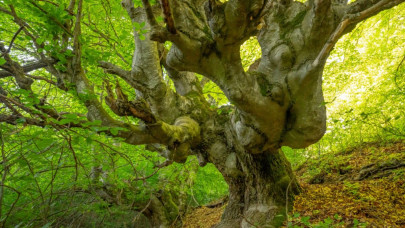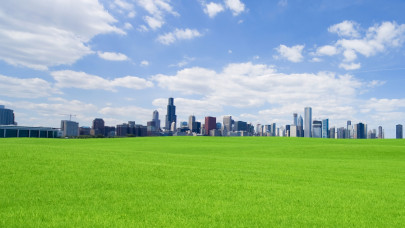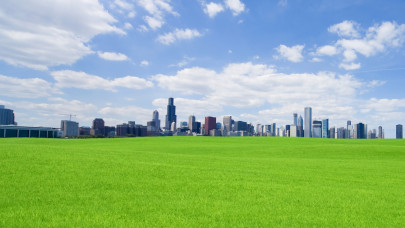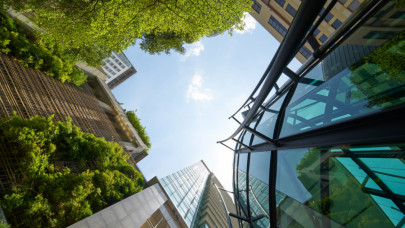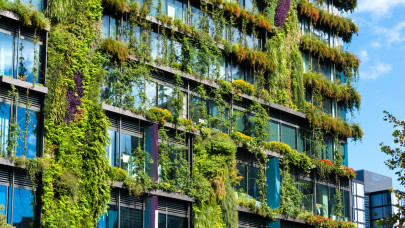Alina Oprea
| 22 May, 2023 at 11:27 AM
2,544 ancient beech trees from Nucșoara can be adopted in the "Forest of Immortal Stories". The new project is an initiative of the Commune of Nucșoara in Argeș County, carried out with the support of the Conservation Carpathia team and aims to protect some of the most spectacular ancient beech trees in Europe and to contribute to the tourism development of the area. Anyone can adopt a secular beech tree for RON700 (€140), choosing it from a map of the site or searching by a preferred number.
Alina Oprea
| 17 May, 2023 at 5:09 PM
An online platform calculates your personal carbon footprint over the course of a year in terms of transport, waste, and energy consumption. The calculator is available on the economiecirculara.eu platform has algorithms that are based on international standards and measurements and measure the carbon footprint within a year.
Alina Oprea
| 17 May, 2023 at 9:24 AM
Poland and Japan have signed an MoU which will deepen hydrogen cooperation between the two countries. The agreement aims to deepen bilateral cooperation in the production of renewable, low-emission hydrogen and the development of a “sustainable and affordable” hydrogen supply chain in the areas of energy, transport, heating, and industry.
Alina Oprea
| 15 May, 2023 at 9:30 AM
Nokian Tyres has started construction work on its new tyre factory in Romania, the first unit with zero CO2 emissions in the tyre industry. The total value of the Oradea investment is estimated at approximately €650 million, which makes it one of the largest investments in Romania in recent years. The factory will employ 500 people.
Alina Oprea
| 10 May, 2023 at 8:01 AM
Alpla inaugurates a PET recycling unit in Târgu Mureș, an investment of €7.5 million. The plastic recycled at the factory in Târgu Mureș will be used for the production of new PET bottles. Alpla has 190 production units in 46 countries.
Alina Oprea
| 8 May, 2023 at 12:54 PM
The World Bank supports Bulgaria's efforts to secure clean energy resources. The bank will provide expert technical opinions based on the best global ideas and practices for managing Bulgaria's geothermal energy resources. The use of geothermal energy will provide new jobs and guarantee a smooth transition to green energy.
Alina Oprea
| 5 May, 2023 at 5:30 PM
The Electrolux Group reached its set targets for reducing greenhouse gas emissions three years earlier. The group thus reduced its greenhouse gas emissions from direct and indirect operations by 82% and the emissions resulting from the direct use of household appliances by 25%.
Alina Oprea
| 5 May, 2023 at 12:30 PM
Nestlé has officially inaugurated the Institute of Agricultural Sciences to help advance sustainable food systems by delivering science-based solutions in agriculture. Its goal is to identify the most promising solutions to promote the production of nutritious raw materials while minimizing their environmental impact.
Alina Oprea
| 2 May, 2023 at 6:01 PM
The company Solar MD begins production of energy storage batteries in Ruse, Bulgaria. The Association for Production, Storage, and Trade of Electricity (APSTE) expects that within three years Bulgaria will have over 6,000 MW of installed capacity from wind and solar plants.
Alina Oprea
| 2 May, 2023 at 12:29 PM
E-Infra started the project of a green hydrogen plant of 5 MW, in Turda, financed by PNRR. The facility would produce, annually, about 518 tons of green hydrogen, and the commissioning date is June 30, 2025. The total value is RON50.2 million (€10.04 million).
Alina Oprea
| 2 May, 2023 at 8:13 AM
The value of the green technology market was $1.5 trillion in 2020 and is expected to reach over $9.5 trillion by 2030, according to a report by UNCTAD - the United Nations Trade and Development Agency. UNCTAD's Technology and Innovation Report 2023 warns that economic inequalities risk widening as developed countries reap the most benefits from green technologies such as artificial intelligence, the Internet of Things (IoT), and electric vehicles.
Alina Oprea
| 27 April, 2023 at 9:00 AM
23% of Romania's surface is occupied by protected natural areas that are part of the Natura 2000 network, says the Minister of the Environment, Waters and Forests, Barna Tanczos. He considered that, from the point of view of natural capital, Romania is one of the members states with a rich biological diversity in terms of species and natural habitats and ecosystems.
Alina Oprea
| 24 April, 2023 at 11:18 AM
Earth Day is celebrated every year on April 22. On this occasion, Google presents the popular searches of Romanians, related to climate change and environmental protection. Thus, climate changes and their effects on the environment, solar energy, recycling, or electric bicycles were among Romanians' searches on Google.
Alina Oprea
| 24 April, 2023 at 9:01 AM
Romania is among the most vulnerable countries in the region to the risks related to the transition to a green economy, in the context where investments in decarbonization are expected to put additional pressure on public finances. According to the global rating agency Fitch Ratings, the cost impact of the decarbonization transition on sovereign ratings in the region appears to be manageable.
Alina Oprea
| 21 April, 2023 at 4:57 PM
Four out of ten Romanians have not heard of any brand involved in sustainable actions, shows a study carried out by IZI for the Romanian Sustainability Embassy (ASR). According to him, responsible communication from truly sustainable companies is essential to combat the greenwashing phenomenon.
Alina Oprea
| 13 April, 2023 at 5:32 PM
Primark launches its first circular collection. The new 35-piece collection is designed and made to be worn longer, helping to reduce waste in fashion, and is part of Primark's commitment to giving clothes a longer life. Each piece in the collection has been made from more sustainably sourced materials.
Alina Oprea
| 12 April, 2023 at 1:34 PM
80% of Romanians are willing to do more for sustainability, and the main barriers are the lack of easy access to information and personal resources, according to a study carried out by the Arctic Foundation in collaboration with Ipsos. 38% say they don't know what to do to be more sustainable, and 34% believe they don't have time to act in this direction.
Alina Oprea
| 12 April, 2023 at 10:57 AM
More than 130,000 saplings will be planted this spring in the Dobroneagu area, announced the Conservation Carpathia Foundation. The ecological restoration of Mount Doboneagu began in 2022, with 350,000 saplings planted here. For the first time, in addition to the traditional planting of saplings, in Dobroneagu, direct sowing with jir seeds will be tested, and drones will be used in hard-to-reach areas.
Alina Oprea
| 11 April, 2023 at 9:11 AM
The Minister of European Investments and Projects, Marcel Boloș, together with the Minister of Research, Innovation, and Digitization, Sebastian Burduja, inaugurated the project "From Nano to Macro in Hydrogen Energy - Expansion of the National Center for Hydrogen and Fuel Cells - HyRo 2.0". The project will focus on validating and demonstrating the performance of hydrogen energy technologies, reducing costs, and identifying the most appropriate applications for these technologies.
Alina Oprea
| 10 April, 2023 at 9:25 AM
By 2028, all payment cards issued in the Mastercard network will have Card Eco certification. Thus, Mastercard will eliminate the use of non-recycled PVC plastic from the production associated with the payment cards in its network.
Alina Oprea
| 7 April, 2023 at 4:20 PM
A hydrogen factory will be built in Galati, on the site of the Siderurgic Complex, as a result of a project worth €32 million that would be financed directly by the European Commission. Hydrogen is seen as an alternative to fossil fuels.
Alina Oprea
| 6 April, 2023 at 6:04 PM
The Minister of Finance, Adrian Câciu, signed a loan agreement with the World Bank to finance the project to prevent and reduce pollution in rural areas in Romania. The amount of the loan is €60 million, with repayment in a single instalment, the repayment date being April 15, 2035. The Ministry of the Environment specifies that it supports any initiative that contributes to reducing pollution and protecting the environment.
Alina Oprea
| 31 March, 2023 at 12:30 PM
Fepra will invest €15 million by 2030 to develop the circular economy in Romania, based on a complex sustainable development strategy developed in partnership with the European Bank for Reconstruction and Development (EBRD). The company's objectives are to further expand the range of services and products, broaden its areas of expertise and develop the new waste collection, recycling, as well as reuse capabilities.
Alina Oprea
| 30 March, 2023 at 11:16 AM
Changing the heating system and replacing doors and windows can reduce the carbon emissions of a single-family home by more than 80 percent, according to a CO2-Optimist study by the Swiss research institute EMPA for E.ON. It shows that poor insulation and outdated heating systems lead to above-average energy consumption and higher costs.

